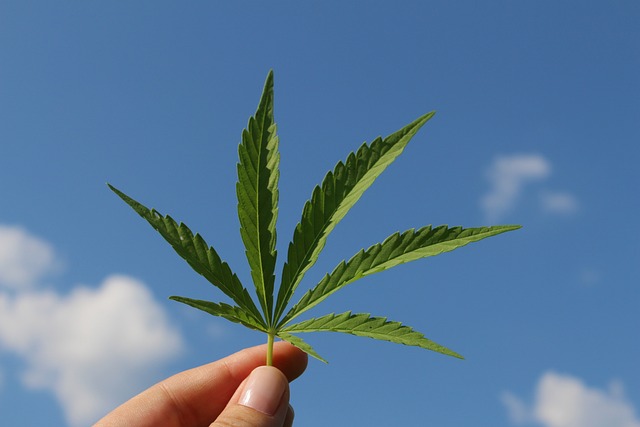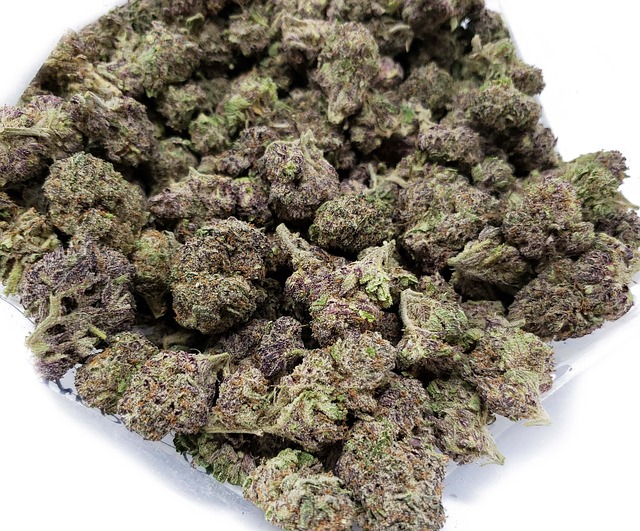
The article discusses the potential health impacts of THCA Flower, a non-psychoactive precursor to THC found in raw cannabis flowers. Research suggests that THCA may offer therapeutic benefits such as anti-inflammatory, neuroprotective, and antiemetic properties, which could be beneficial for managing conditions like arthritis, multiple sclerosis, and chemotherapy-induced nausea by modulating physiological functions related to pain, inflammation, and anxiety. THCA interacts with the endocannabinoid system, potentially aiding in health management without the psychoactive effects of THC. While it's similar to THC in some benefits, THCA is different in its ability to provide a sense of well-being without intense intoxication. However, consumers should be aware of possible side effects like dry mouth or eyes, dizziness, anxiety, or paranoia, which can vary with dosage and individual sensitivity. It's crucial for individuals to seek advice from healthcare professionals when considering THCA flower as part of their health regimen and to educate themselves on its effects and benefits for informed decision-making, especially given the legal status of cannabis products varies by region. Proper dosing and mindful consumption are key to a safe experience with THCA flower's potential wellness properties.
Exploring the multifaceted impacts of THCA flower on human health, this article sheds light on its potential effects and benefits. Delving into the therapeutic properties inherent in raw cannabis, we uncover the science behind THCA’s influence on well-being. A critical examination of the side effects associated with THCA flower consumption is essential for informed decision-making among users. This piece aims to provide a comprehensive understanding of THCA flower effects and benefits, guiding readers through its therapeutic potential and precautions.
- Unraveling THCA Flower: Potential Effects and Benefits on Human Health
- The Therapeutic Properties of Raw Cannabis: Insights into THCA's Impact
- Navigating the Side Effects of THCA Flower Consumption: What Users Should Know
Unraveling THCA Flower: Potential Effects and Benefits on Human Health

Unraveling the potential effects and benefits of THCA Flower on human health involves a nuanced examination of its chemical properties and interactions within the body. Tetrahydrocannabinolic acid (THCA), the raw, non-psychoactive form of THC found in hemp and cannabis plants, has garnered attention for its therapeutic prospects. Preliminary research suggests that THCA interacts with the endocannabinoid system, which regulates a range of physiological processes including pain, inflammation, and anxiety responses. Advocates claim that THCA Flower may offer anti-inflammatory, neuroprotective, and antiemetic properties, potentially beneficial for conditions such as arthritis, multiple sclerosis, and nausea associated with chemotherapy. Moreover, its potential role in modulating appetite, sleep patterns, and mood underscores the need for further scientific investigation to elucidate its effects on human health comprehensively.
Ingesting THCA Flower, whether through smoking or consuming cannabis-infused products, introduces this compound into the body where it may exert various effects. Theoretically, THCA could serve as a pro-cannabinoid that, once heated (decarboxylated), converts to THC, another well-studied cannabinoid with its own set of medical applications. Unlike THC, however, THCA does not induce psychoactive effects, making it an appealing option for individuals seeking the potential health benefits without the high. The exploration of THCA Flower’s effects and benefits on human health is a burgeoning field, with ongoing studies expected to shed light on its potential applications and optimal utilization in various therapeutic contexts.
The Therapeutic Properties of Raw Cannabis: Insights into THCA's Impact

Raw cannabis contains tetrahydrocannabinolic acid (THCA), which is the precursor to the well-known psychoactive compound THC. THCA is found abundantly in raw cannabis flowers and has garnered attention for its therapeutic properties. Preliminary research suggests that THCA may offer a range of health benefits without the psychoactive effects associated with its decarboxylated form, THC. Studies have indicated that THCA interacts with the body’s endocannabinoid system, potentially modulating pain and inflammation responses. It is believed to exert anti-inflammatory effects, which could be beneficial for individuals suffering from conditions like arthritis or multiple sclerosis. Moreover, THCA has shown promise in neuroprotective properties, possibly aiding in neurological disorders by promoting the health and survival of neurons. The flower’s raw state preserves these potential benefits, making it an object of interest for those exploring cannabinoids for wellness or therapeutic use. Users interested in the effects and benefits of THCA often consume raw cannabis flowers in their natural form, whether through juicing, smoothies, or directly consuming the flower to harness its potential health advantages.
Navigating the Side Effects of THCA Flower Consumption: What Users Should Know

Navigating THCA flower consumption requires a comprehensive understanding of its potential effects and benefits, as THCA, or Tetrahydrocannabinolic Acid, is the raw form of THC found in cannabis and hemp plants. Users should be aware that THCA possesses distinct properties compared to its decarboxylated counterpart, THC. While the psychoactive effects are minimized in THCA, some users may still experience mild intoxication or a sensation of well-being due to its partial psychoactivity. One of the notable benefits of THCA is its potential therapeutic properties, which include pain relief, anti-inflammatory effects, and neuroprotective benefits, as suggested by preliminary studies. However, like any substance, it’s not without side effects. Consumers might experience dry mouth or eyes, dizziness, anxiety, or paranoia in higher doses. These side effects can be mitigated with proper dosing and by being mindful of individual sensitivities to cannabinoids. Understanding the nuances between THCA and other cannabinoids is crucial for users seeking specific therapeutic outcomes. It’s advisable to consult with a healthcare professional before incorporating THCA flower into any wellness regimen, especially considering the varying legal statuses of cannabis-derived products across regions. By educating oneself on the effects and benefits of THCA flower, users can make informed decisions that align with their health goals and ensure a safe and positive experience with its consumption.
In conclusion, the exploration of THCA flower’s effects and benefits on human health presents a nuanced understanding of this natural compound. The therapeutic properties of raw cannabis, particularly its non-psychoactive precursor THCA, suggest promising avenues for wellness and potential medical applications. However, it is imperative to approach THCA flower with informed discernment, recognizing that, like any substance, it can induce side effects. Users should be cognizant of these potential impacts, which may include mild psychoactive effects upon decarboxylation, digestive upset, and interaction with other medications. A balanced approach to incorporating THCA flower into one’s health regimen, coupled with consultation with healthcare professionals, is key to maximizing its therapeutic benefits while mitigating any adverse reactions. As research continues to evolve, so too will the understanding of how THCA flower can be effectively utilized for its myriad effects and potential benefits.




